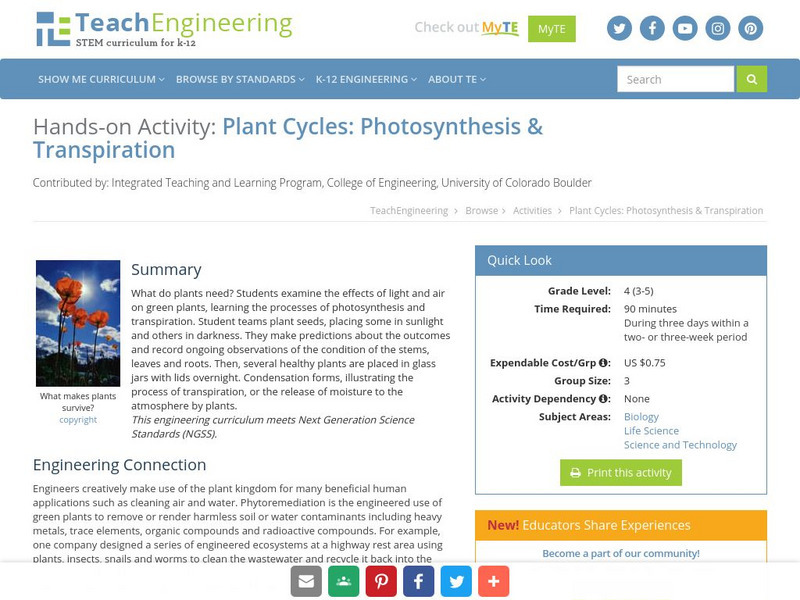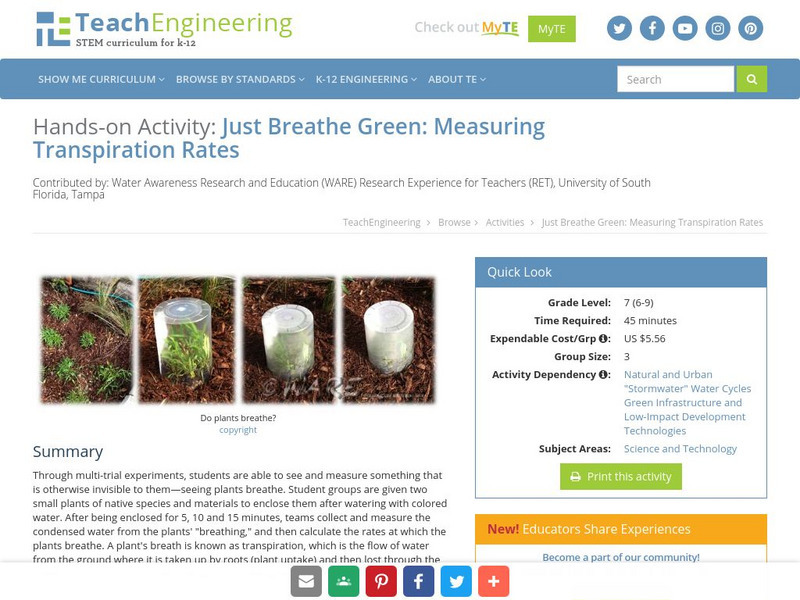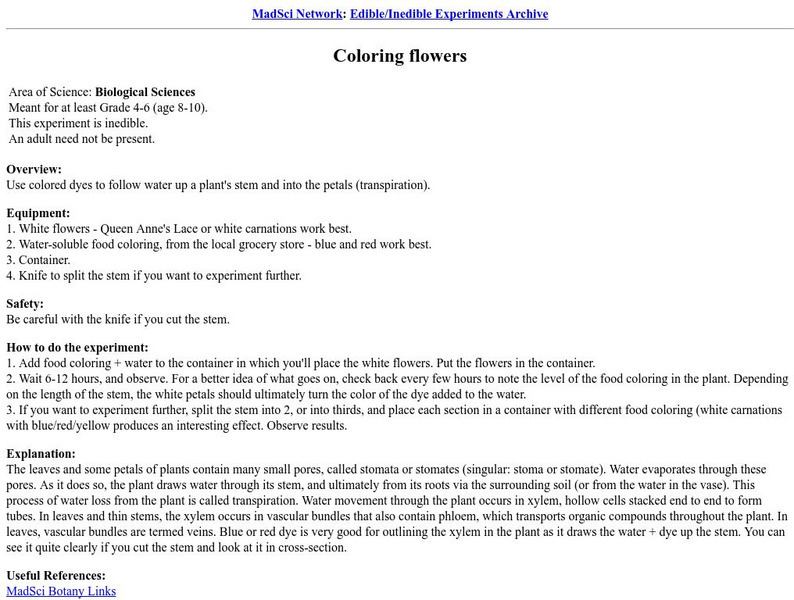University of Wisconsin
Bimodel Botany Bouquet
Gardeners are given an individual plant specimen from a bouquet of local rain garden plants. They group up by their plant type and then make observations together, name the plant, and introduce it to the rest of the class. You then share...
Teach Engineering
Corn for Fuel?!
Can corn power the world? Young scientists learn about how corn and other plants can provide renewable biofuels in the second of nine lessons. They set up an experiment to investigate how different variables affect plant growth. All of...
University of Wisconsin
Conjunction Function
As part of a unit, this lesson familiarizes youngsters with components of a rain garden. They speculate about the role of an assigned component in contributing to a rain garden, and ultimately, in the health of the local watershed. Each...
TeachEngineering
Teach Engineering: Plant Cycles: Photosynthesis & Transpiration
What do plants need? Students examine the effects of light and air on green plants, learning the processes of photosynthesis and transpiration. Student teams plant seeds, placing some in sunlight and others in darkness. They make...
TeachEngineering
Teach Engineering: Just Breathe Green: Measuring Transpiration Rates
Through multi-trial experiments, students are able to see and measure something that is otherwise invisible to them- seeing plants transpire. This information will allow students to consider how a plant's unique characteristics (leaf...
Can Teach
A Demonstration of Photosynthesis and Transpiration
Students of all ages wonder what happens to a seed when you plant it in the ground. Try this basic experiment and let them explore, pose questions, and make predictions.
MadSci Network
Coloring Flowers
Demonstrate plant transpiration for your students using a white flower and colored water. This is an easy experiment that shows how a plant takes in water and nutrients.
Museum of Science
Museum of Science and Industry: Online Science: Color Changing Carnations
A popular plant experiment where food coloring is added to the water that flowers sit in, to see how this affects the color of the flowers. It demonstrates how water travels through the xylem of a flower stem.
TeachEngineering
Teach Engineering: Corn for Fuel?!
In this activity, students examine how to grow plants the most efficiently. They imagine that they are designing a biofuels production facility and need to know how to efficiently grow plants to use in this facility. As a means of...








